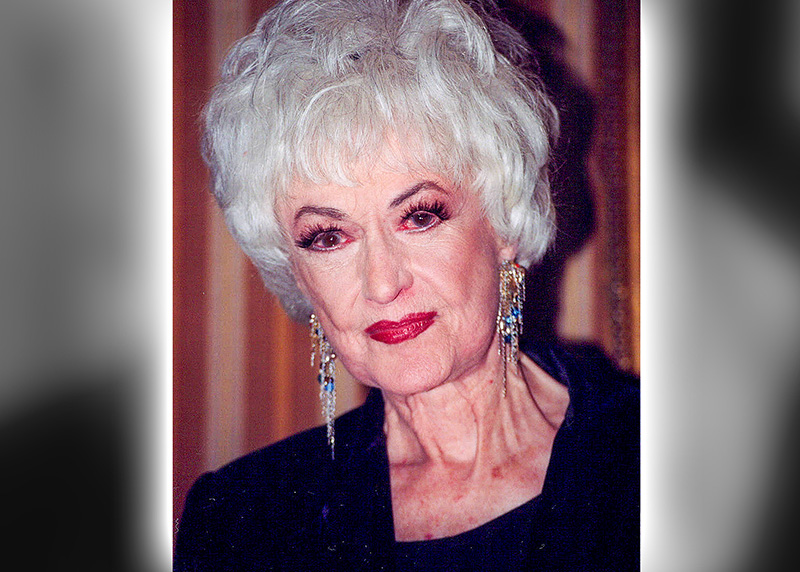Maryland lawmakers pass bill allowing minors to receive PrEP without parental consent
Bill seeks to make it easier for sexually active minors to access medication to avoid contracting HIV

Maryland lawmakers have approved a bill allowing minors to receive pre-exposure prophylaxis, or PrEP, without obtaining parental consent as a way to prevent the spread of HIV among youth.
On Monday, the House of Delegates voted 111-19 in favor of SB 251, sponsored by Sen. Clarence Lam (D-Baltimore, Howard counties), which would allow doctors, nurse practitioners, and physician assistants to prescribe Truvada, a drug typically used in treating HIV, as a form of prevention against the virus. Seventeen other states have passed similar laws granting youth access to PrEP.
According to the Centers for Disease Control and Prevention, the use of Truvada as PrEP can reduce the risk of person becoming infected through sex by 90 percent and through IV drug use by 70 percent.
Lam’s bill had previously passed the Senate by a vote of 47-0 after the Senate Finance Committee tacked on two amendments: one a technical change considered favorable to the bill, and the second a removal of a provision that expressly prohibited a licensed health care practitioner from giving any information about treatments to prevent HIV to a minor’s parents over the minor’s objections.
Now, practitioners have the option, but not the obligation, of notifying parents about any prescriptions they have issued, even if consent was not necessary for the treatment, as in the case of PrEP. This provision was adopted in order to bring the bill into line with current Maryland law that requires at least one parent of a minor seeking an abortion to be informed of the procedure, but does not require consent to move forward with it.
HIV and health advocates have touted the bill as a lifesaving measure for young black men, particularly those living in poverty. According to statistics from the Maryland Department of Health, 73% of the 1,040 youth aged 13 to 24 diagnosed with HIV in 2017 were black. LGBTQ advocates also backed the bill, noting that statistics show that three-quarters of youth who were exposed to HIV were men who have sex with men.
In total, the 1,040 cases of HIV diagnoses among youth in 2017 constituted nearly 22% of the total number of diagnoses in the state.
“I treat teens who need the protection of PrEP to save their lives,” Dr. Raymona Smith, a pediatrician at Chase Brexton Health Care who specializes in adolescent medicine, transgender youth, and at-risk youth. “Without this medicine, entire communities are at risk for an increased incidence of HIV disease. As a provider, when I must inform an adolescent that he or she is HIV positive, it’s a sleepless night for me, and I can’t imagine the impact on them.”
The Maryland Department of Health estimates that more than 50% of youth currently living with HIV remain undiagnosed, underscoring the need for potential partners of those youth to take additional precautions to avoid acquiring HIV.
Proponents of the bill say it’s needed to link at-risk youth with care that might otherwise be delayed if a minor does not want to inform their parent that they are sexually active.
“I think it was important to introduce this bill because there are new drugs developed by the FDA to prevent individuals from contracting HIV, and we understand there are certain populations, including minors, for whom this would be lifesaving, to prevent them from contracting HIV,” Lam told Metro Weekly in an interview. “Right now, there’s tremendous stigma for people seeking these medications, and I wanted to make sure that minors would be able to obtain these medications without having to have parental consent.
“There are currently certain exceptions permissible under law that allow minors to seek certain medications or treatments for conditions like STDs, for example, without parental consent, and we thought this was important enough of an issue — and the drugs are so protected — that its important to ensure minors can request this medication from doctors, and that doctors are comfortable prescribing it to minors on a prophylactic basis,” added Lam, who works as a physician at Johns Hopkins.

Lam notes that he and fellow co-sponsors tried to educate their fellow senators about the importance of the bill and dispel any myths surrounding it, such as the false claim that it would cost insurance companies more to provide PrEP than treating individuals for HIV after they are infected, or that the bill would secretly rewrite state law around parental notification involving minors obtaining abortions.
“I think people were questioning the risky behavior that could lead to this, but I think they also understood, after some degree of explanation, that this is really protective,” Lam said. “We’re not questioning people’s behavior. People can choose to wear or not wear a seatbelt — but if they get injured, they’ll end up at emergency room, and we’ll treat them regardless. This provides another option to people, similar to expanding condom use or availability, to prevent a serious condition. Once we explained it in that light, the opponents came to understand this was very important, and, from a policy standpoint, fairly innocuous.”
Del. Terri Hill (D-Howard, Baltimore counties), a plastic surgeon by trade and the lead sponsor of a similar House bill, said some opponents in the lower chamber were concerned about parents being unaware of their child’s sexual activities.
“They were concerned and focusing on the fact that they’d like to know if it was their child, instead of understanding that all children aren’t in perfect households,” Hill told Metro Weekly. “There was testimony given by practitioners that they work hard to encourage patients to share information with parents. But what I don’t want to see is folks not having medication because that ideal family situation does not exist.”
Hill also noted that what makes the access bill different from other situations involving minors is that doctors are prescribing PrEP based on individual factors and circumstances that put certain patients at higher risk of contracting HIV.

“I think we’re also not aware of how many of our young people, male and female, are caught up in sex trafficking and exploitation,” she said. “It’s not just all experimental sex and people thinking they’re invincible. We have some kids who are in very vulnerable situations.
“And either way, when you talk about a lifelong, potentially devastating disease such as HIV, it’s like that saying, ‘an ounce of prevention is worth a pound of cure,'” Hill added. “I just think it’s really important that we look at this problem holistically where young people are concerned, to do what we can to protect them from life choices or life experiences that can completely negatively impact their futures.”
Stacey Jackson-Roberts, a therapist and clinical social worker at Chase Brexton Health Care, expressed hope that the bill would allow health practitioners to reverse the increase in the number of HIV diagnoses among youth, particularly black youth. She also noted there are currently disparities among different populations regarding the accessibility of PrEP, making the bill even more necessary for those at higher risk of contracting the virus.
“We have a lot of individuals who have become sexually active, and are maybe not having those conversations with their parents [about prevention],” said Jackson-Roberts. “And they may be coming from really good families, but just aren’t comfortable coming out or disclosing how they’re responding to their sexuality or identity, and therefore are at risk.”
Jackson-Roberts noted that it is “ideal” that minors openly communicate with their parents about their sexual activity, but if such conversations are going to be a hindrance, making PrEP available is the best way to offer “every available option” to help them take care of their health.
Lam’s bill now heads to Gov. Larry Hogan, who will decide whether to sign it into law. A spokesperson for the governor’s office did not respond to a request for comment.
Support Metro Weekly’s Journalism
These are challenging times for news organizations. And yet it’s crucial we stay active and provide vital resources and information to both our local readers and the world. So won’t you please take a moment and consider supporting Metro Weekly with a membership? For as little as $5 a month, you can help ensure Metro Weekly magazine and MetroWeekly.com remain free, viable resources as we provide the best, most diverse, culturally-resonant LGBTQ coverage in both the D.C. region and around the world. Memberships come with exclusive perks and discounts, your own personal digital delivery of each week’s magazine (and an archive), access to our Member's Lounge when it launches this fall, and exclusive members-only items like Metro Weekly Membership Mugs and Tote Bags! Check out all our membership levels here and please join us today!

























You must be logged in to post a comment.